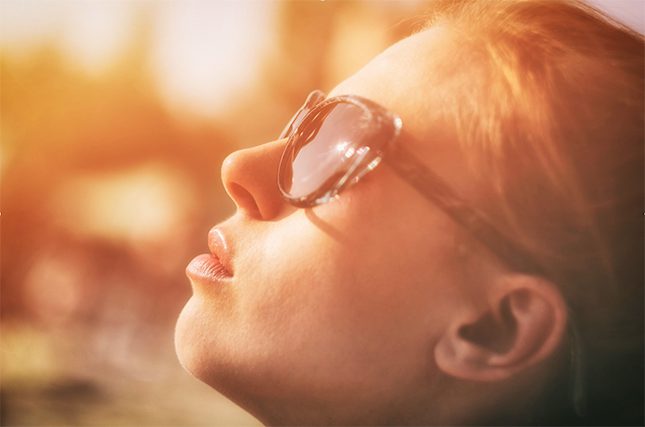Vitamin D, despite its name, is more like a hormone than a vitamin. Like all hormones, it helps keep skin from becoming thin and fragile. Deficiency will cause skin sagging, dryness and wrinkles, inevitably aging us. Vitamin D is critical to helping skin maintain a youthful glow.
An estimated 45 percent of Americans are believed to be deficient in vitamin D — also called the “sunshine vitamin” because it is produced when skin is exposed to sunlight. Why such a high percentage? We are outside less. And when we are outside, many of us wear sunscreen. Also, as we age, our skin is challenged to absorb and process UV light, losing about 75 percent of its ability to produce vitamin D.
“We get about 90 to 95 percent of our vitamin D from the sun. It is essential for absorbing calcium, keeping our bones healthy and for protecting against serious chronic diseases later in life such as osteoporosis, type 2 diabetes, multiple sclerosis and many common cancers,” says Michael Holick, professor at Boston University School of Medicine and author of “The UV Advantage.”
What’s the D-eal? Get sun? Don’t get sun?
Two seemingly opposing messages can be confusing. Should we spend time out in the sun to get vitamin D or stay out of the sun and cover up with sunscreen to prevent aging and skin cancer?
How do you get enough sun without getting too much?
Holick recommends staying in the sun until your skin turns the lightest shade of pink, or half the time it would take to get a mild sunburn. For example, if you tend to get sunburned after 20 minutes, you should stay in the sun for 10 minutes.
To D or not to D?
If your circumstances don’t allow you access to the sun, then you really only have one option if you want to raise your vitamin D: take a vitamin D supplement.
How to check your levels
Ask your doctor to test your D levels. If you want to test from home, sign up for the D*Action Project. Just purchase the D*Action Measurement Kit from Mercola and follow the instructions.
Tip: Short bursts of sunlight, five to 15 minutes a day, without sunscreen, are best for preventing skin cancer and for improving vitamin D uptake — as well as for keeping skin bright, youthful and supple.


